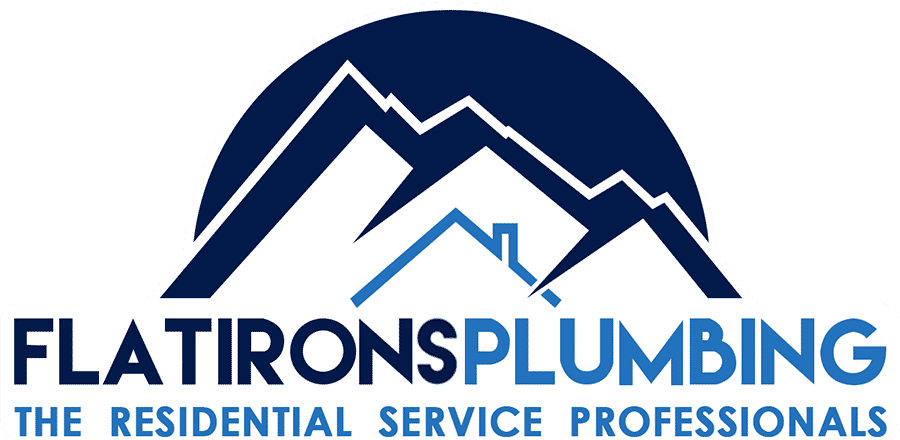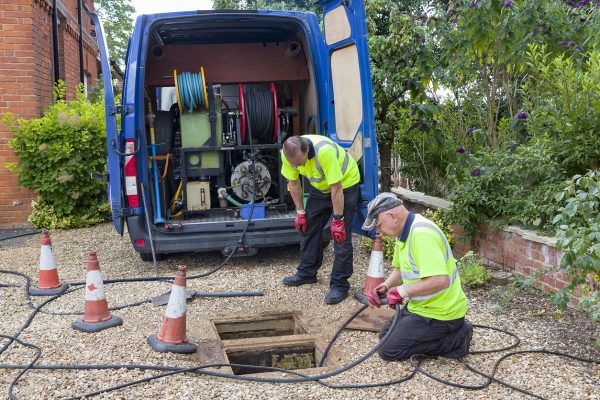Dirty, slow-moving drains are an all-too-common issue. Even if you’re careful about keeping grease, cooking oils, and hard, non-degradable items out of your plumbing system, your drains can still develop tough, tacky accumulations that inhibit the flow of wastewater.
Build-ups of body oils, soap scum, and hair can leave you standing ankle-deep in your own shower water. Oily residues and food remnants can cause similar issues in your kitchen. However, before you grab your plunger, auger, or chemical drain cleaner, it’s important to know how DIY drain cleaning measures up to professional drain cleaning service.
The Pros and Cons of Using Chemical Drain Cleaners
Available as powders or liquid solutions, chemical drain cleaners undergo rapid chemical changes when homeowners add them to standing water. Caustic drain cleaners heat up to “burn” through soft and semi-solid build-ups. Corrosive drain cleaners “eat” through trapped materials to create room for the movement of waste and wastewater.
Unfortunately, both product types destroy organic materials indiscriminately. Thus, if they don’t work and they don’t pass through your plumbing system, they can degrade your pipes, pipe connections, and other plumbing fixtures. They can also cause serious chemical burns to eyes, lungs, and skin on direct contact or in poorly ventilated conditions.
DIY Mechanical Drain Cleaning
Plungers, augers, and drain snakes are easy to access and fairly inexpensive. However, if you don’t know the exact nature and location of a drain blockage, you run the risk of lodging it deeper within your plumbing system. The sharp tips of drain augers and drain snakes can also scratch the porcelain coatings on toilets and other plumbing fixtures, damage pipe coatings, or pierce through pipes. Using these tools to clear clogs or clean excessively dirty drains can also void fixture manufacturers’ warranties.
Using Baking Soda and White Vinegar to Freshen Your Drains
One common DIY drain cleaning method is to pour equal amounts of baking soda and white vinegar into blocked and slow-moving drains. When the two combine, they initiate a vigorous bubbling and foaming reaction. Although visually satisfying, this mixture isn’t powerful enough to clear out soap scum, biofilm, or hair. Baking soda and white vinegar are safe for use in DIY drain cleaning, but they’re best for periodically freshening drains that are regularly maintained by a professional.
Professional Drain Cleaning: What It Is and Why It Works
Plumbers use multiple methods for cleaning dirty, blocked drains. These include the use of mechanical drain cleaning tools like snakes, rooters, and augers. However, mechanical drain cleaning from plumbers actually sloughs tough, tacky build-ups off pipe walls and has a noticeable impact on wastewater flow throughout entire plumbing systems.
Hydro-jetting and hydro-steaming services can scour pipe interiors clean. Performed at plumbing clean-outs, these treatments eliminate build-ups of sediment and silt, grease, bio-film, hair, and even hard, solid obstructions like invasive tree roots and weeds. Best of all, plumbers always inform their work with sewer line camera inspections so that they aren’t using methods that cause more plumbing problems than they solve.
Having professionals clean your drains is both safer and more effective than cleaning them yourself. When you need professional drain cleaning in Arvada, CO, get in touch with Flatirons Plumbing.



